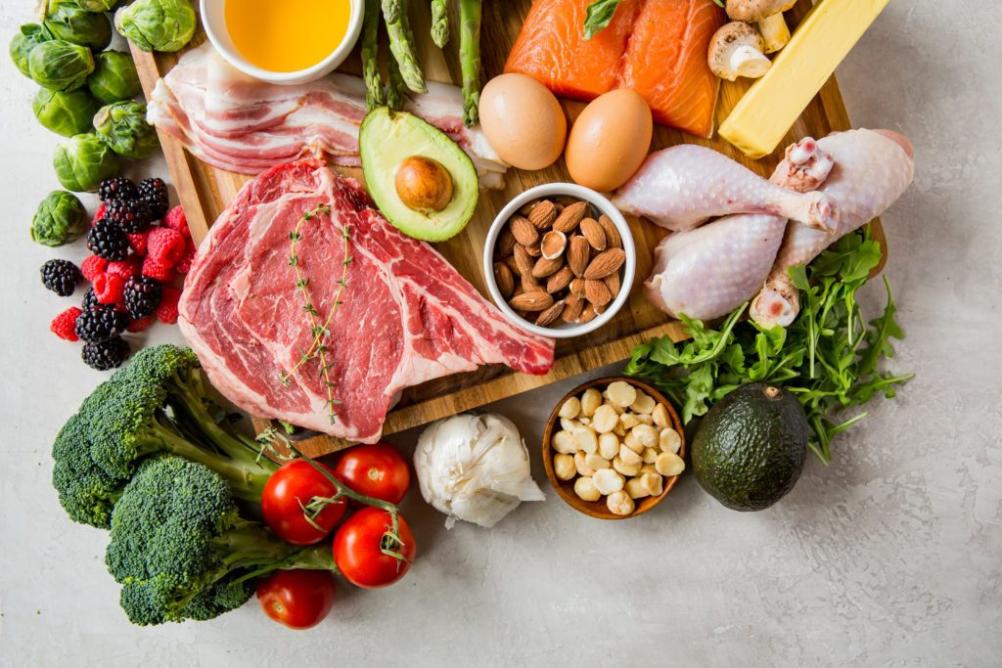Keto Diet Shopping List: What Foods to Buy and Avoid
The ketogenic diet (keto diet) is a low-carb, high-fat diet that has gained popularity in recent years. It involves drastically reducing carbohydrate intake and replacing it with healthy fats. This shift in macronutrient balance triggers a metabolic process called ketosis, where the body starts burning fat for fuel instead of glucose.

Following a keto diet can offer several benefits, including weight loss, improved blood sugar control, reduced inflammation, and enhanced cognitive function. However, it's important to approach this diet with a well-rounded understanding of the foods to include and avoid.
Keto-Friendly Foods: What To Buy
A. Protein Sources:
- Meat: Opt for unprocessed and grass-fed options like beef, pork, and lamb.
- Poultry: Choose chicken, turkey, or duck without added sugars or breading.
- Fish and Seafood: Include salmon, tuna, mackerel, sardines, and other fatty fish.
- Eggs: Select organic and free-range eggs for optimal nutrient content.
B. Healthy Fats:
- Olive Oil: Use extra virgin and cold-pressed olive oil for cooking and dressings.
- Avocado and Avocado Oil: Incorporate avocados and their oil into your diet.
- Nuts and Seeds: Enjoy almonds, walnuts, chia seeds, and flaxseeds as snacks or additions to meals.
- Coconut Oil and Butter: Use coconut oil for cooking and grass-fed butter for flavor and healthy fats.
C. Low-Carb Vegetables:
- Leafy Greens: Include kale, spinach, lettuce, and arugula in your salads and meals.
- Cruciferous Vegetables: Broccoli, cauliflower, Brussels sprouts, and cabbage are excellent choices.
- Non-Starchy Vegetables: Zucchini, cucumber, celery, and bell peppers are low in carbs and high in nutrients.
- Mushrooms and Tomatoes: Add mushrooms and tomatoes to your dishes for flavor and texture.
D. Berries:
- Blueberries, Raspberries, Blackberries, and Strawberries: These berries are low in carbs and rich in antioxidants.
Foods To Avoid On The Keto Diet
A. Sugary Foods:
- Processed Foods: Avoid cookies, cakes, candy, sugary cereals, and other processed items.
- Sweetened Beverages: Steer clear of soda, juice, energy drinks, and sweetened teas.
- Artificial Sweeteners: Limit or avoid artificial sweeteners like aspartame, sucralose, and saccharin.
B. High-Carb Foods:
- Grains: Eliminate bread, pasta, rice, quinoa, and oats from your diet.
- Starchy Vegetables: Avoid potatoes, corn, peas, and other high-carb vegetables.
- Legumes: Beans, lentils, and chickpeas are high in carbs and should be avoided.
- Fruits: Limit high-sugar fruits like bananas, grapes, and mangoes.
C. Unhealthy Fats:
- Trans Fats: Found in processed foods and fried foods, trans fats are harmful to health.
- Vegetable Oils: Soybean oil, corn oil, and canola oil are high in omega-6 fatty acids and should be avoided.
- Margarine and Shortening: These processed fats are unhealthy and should be replaced with natural fats.
Tips For Keto Diet Shopping
- Read Food Labels Carefully: Check for hidden sugars and carbs in packaged foods.
- Shop the Perimeter of the Grocery Store: Fresh produce, meat, and dairy are often found there.
- Buy in Bulk: Save money and reduce packaging waste by purchasing in bulk.
- Plan Your Meals Ahead of Time: This will help you avoid impulse purchases and ensure you have the right ingredients on hand.
- Experiment with New Foods: Try different vegetables, nuts, and seeds to find new favorites that fit your keto lifestyle.
Conclusion
Adopting a keto diet requires careful planning and a focus on consuming nutrient-rich foods while avoiding processed and high-carb items. By following the guidelines provided in this article, you can create a well-rounded keto diet that supports your health goals. Remember to consult with a healthcare professional before starting a keto diet, especially if you have any underlying health conditions.
YesNo

Leave a Reply